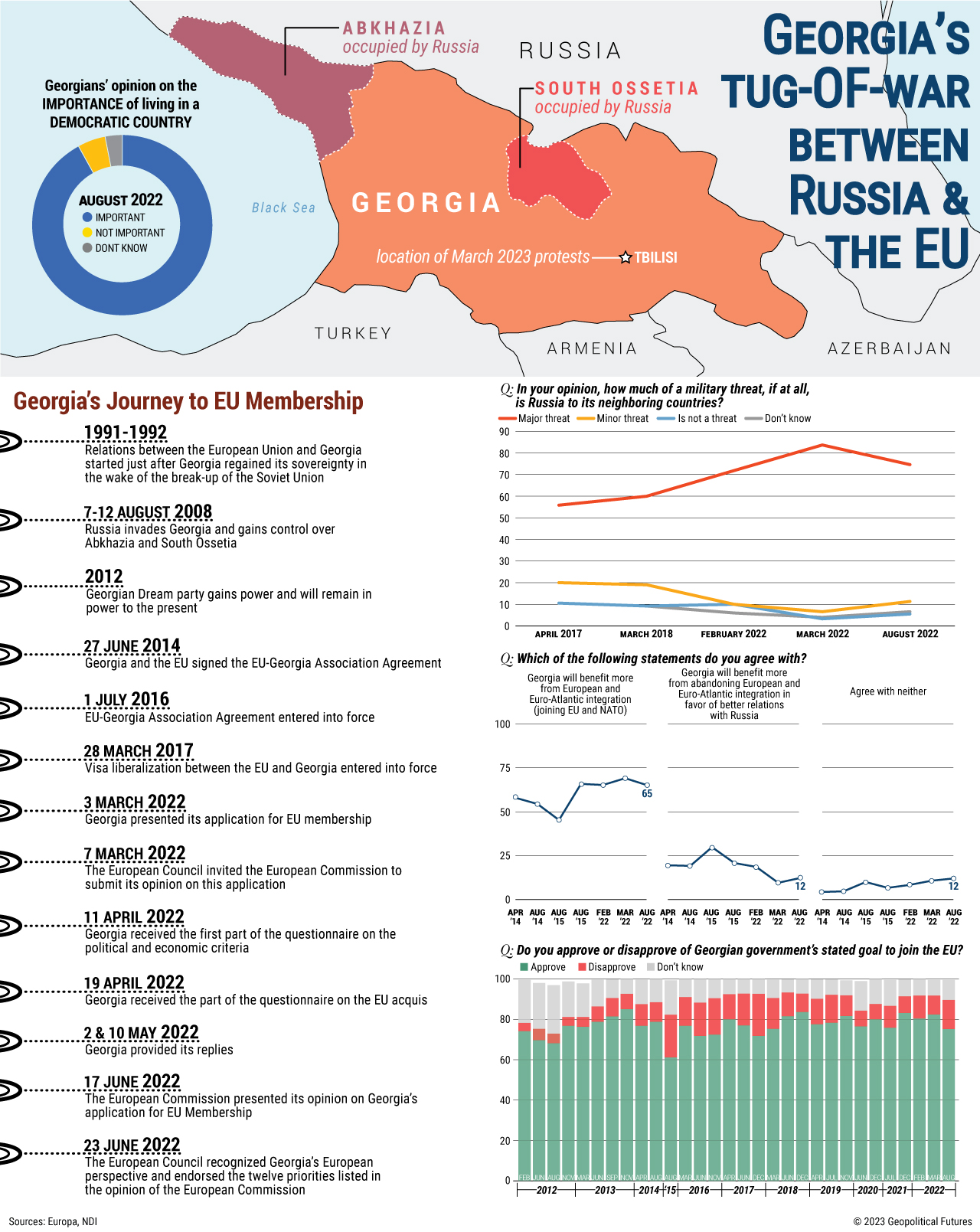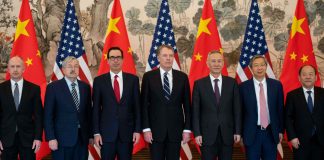Georgia’s capital erupted with protests early this week after parliament attempted to advance controversial legislation on civil society groups. The bill, which has since been rescinded, would have required nongovernmental organizations and the like to register with the government if they receive 20 percent or more of their funding from abroad. It did not escape opponents’ attention that it closely resembles a Russian law, fueling speculation about Moscow’s involvement.
At the center of the controversy is Georgia’s place in the world. A post-Soviet state, Georgia retains some pro-Russian elements. However, it has also appealed to join the European Union (and, infamously, NATO). A majority of the public favors the Western camp, but the ruling Georgian Dream party is less sure. Tbilisi has a ton of work to do to meet EU membership requirements, but the prospect has kept its future in play.







